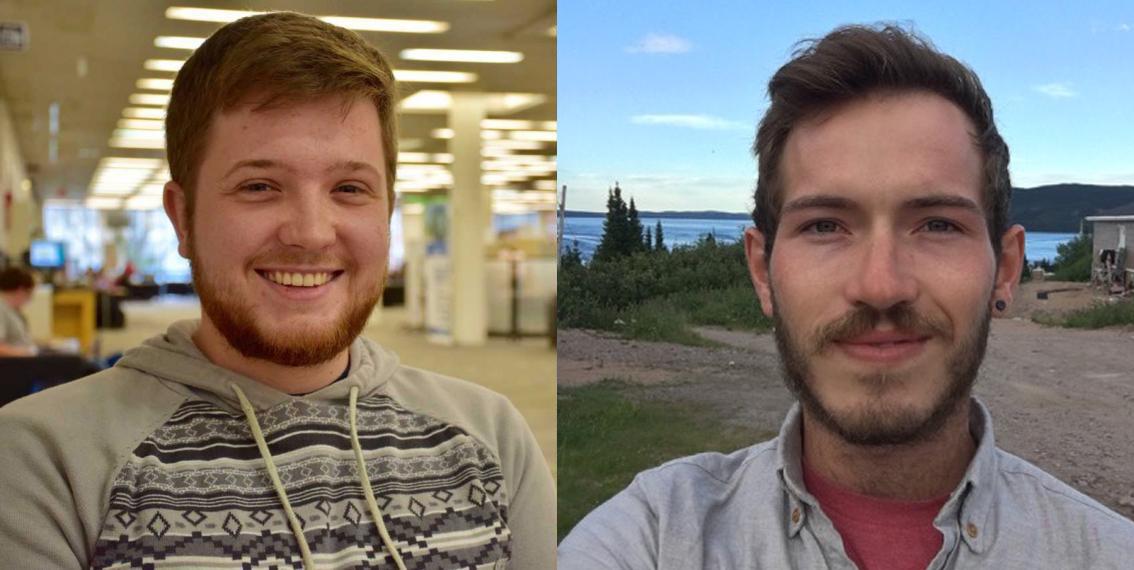Computing Students Receive NSTP Award to Assist with eNuk Project

Two of our fantastic Computing students, Frazer Seymour and Nic Durish, have both been given a Northern Scientific Training Program (NSTP) award in order to help support the work and research that they have been assisting Dr. Dan Gillis with the eNuk project in Rigolet, Labrador. These awards are funded by the Canadian Government, and are to encourage and support Canadian university students who have an interest in northern studies or conducting research in Northern regions.
Frazer has been assisting the eNuk project by working with Left, developing a technology called RightMesh. RightMesh allows devices to form networks with other devices nearby, without needing to have an internet service provider, and therefore all the infrastructure, immediately available. The RightMesh technology became involved in the community-led eNuk project as a way to enable connection as the area is dramatically under-served by the local internet provider and much of the community remains unconnected. This partnership is an exciting chance for us to evaluate the efficacy of our technology to help connect people in remote areas, which is the focus of his role in the research.
For Frazer, one of the best parts of being able to work on this project was attending the ArcticNet conference. “Being able to spend time hearing about northern issues from the Inuit people who actually live there was a really valuable experience for me,” said Frazer. “As was being able to visit Rigolet in northern Labrador and experience what life looks like there”.
Nic has been working as a part of the Technical Team within the eNuk project. He has been assisting the project by exploring, designing and developing the eNuk website and application. His research, however, focusses more on the “Digital Divide”, which is the gulf between those who have ready access to computers and the Internet, and those who do not. Nic wants to research the provision of digital resources, infrastructures and literacy between Canadians, and its implications, specifically in Rigolet, Labrador. At the conclusion of his research, Nic hopes to provide a thesis which helps to provide evidence that the Digital Divide exists; explore its implications and quantify its significance; identify the individuals whom are most affected by the divide; and ultimately help inform possible solutions to bridging the gap.
For Nic, the best parts of the project have been the team and the experience. “I can’t exaggerate how amazing it is to work with such a brilliant and passionate team. Even the worst job in the world seems like the best when you’re surrounded by the right people, so you can imagine what working on a great project with the right people is like,” says Nic. “And the experiences are not at all what I expected, which is fantastic! My worst fear is stagnating, and this project has pushed me out of my comfort zone more times than I can count.”
The School of Computer Science would like to extend their congratulations to both Nic and Frazer on their awards.